The first obvious error is that all addresses in a PDF are usually Decimal values and thus there would not normally be any letters in the xref, hence the common xref error message about the xref structure as not understood.
Could not read x-ref table
This is all down to the method used here for encoding obj 12 as a hex index, that is not wrong, as xrefs may be EITHER ANSI string tables OR encoded xref stream, but for "compatibility" should never be both see (Mixing XRef Tables and XRef Streams)
01 0000009A 00
01 000000D1 00
01 000000EA 00
01 0000014B 00
I am unable to find any files that use this hybrid method successfully to show their structure but the format flag may tend to be /W [1 2 1] or [1 2 2] certainly this approach has been a frequent fail see similar question PDF that renders in Chrome but not in Acrobat
a common final comment in many such cases is
Since that I've managed to test, that the compression can be either nothing
or FlateDecode w/wo Predictor, but nothing else. Namely the ASCIIHexDecode
demonstrated in the RM is unusable.
A normal /Flate encoded xref would be something like this, but is even harder to follow
12 0 obj
<</DecodeParms<</Columns 4/Predictor 12>>/Filter/FlateDecode/Length 57/Root 1 0 R/Size 12/Type /XRef/W [1 2 1]>>
stream
xÚcb``øÏÄÈÀÏÈÄÀÁÀÄÈ0—é?÷-&Ưj 1â?wòo&ƯsÙÅxÕ~ zoW
endstream
endobj
Many (but not all) PDF viewers can work around a poor xref index, even if missing. However, the normal best approach is to use a simple non encoded decimal xref index and trailer like below. So many file fixers will tend to unpack those encodings to rebuild as this simpler unencoded format. Which was accepted by all the viewers I tested. Beware the EOL characters may be affected by simple cut and paste (thus windows is likely to alter these text addresses.)
%PDF-1.7
1 0 obj <</Length 67>> stream
BT 10 782 Td /0 50 Tf 50 TL (Hello)' (World)' (OK)Tj (World)' Tj ET
endstream endobj
2 0 obj <</Count 1/Kids 3 0 R/Type/Pages>> endobj
3 0 obj [4 0 R] endobj
4 0 obj <</Contents 5 0 R/MediaBox 6 0 R/Parent 2 0 R/Resources 10 0 R/Type/Page>> endobj
5 0 obj [1 0 R] endobj
6 0 obj [0 0 612 792] endobj
7 0 obj <</BaseFont/Helvetica/Encoding/MacRomanEncoding/Subtype/Type1/Type/Font>> endobj
8 0 obj <</0 7 0 R>> endobj
9 0 obj [/PDF/Text] endobj
10 0 obj <</Font 8 0 R/ProcSet 9 0 R>> endobj
11 0 obj <</Pages 2 0 R/Type/Catalog/PageLayout/OneColumn>> endobj
xref
0 12
0000000000 65536 f
0000000009 00000 n
0000000124 00000 n
0000000174 00000 n
0000000197 00000 n
0000000287 00000 n
0000000310 00000 n
0000000339 00000 n
0000000428 00000 n
0000000456 00000 n
0000000483 00000 n
0000000529 00000 n
trailer
<</Size 12/Root 11 0 R>>
startxref
596
%%EOF
Result

As a means to reduce the amount of calculations needed the same 11 objects can be made simpler and smaller by a few adjustments to only 5 objects:-
%PDF-1.7
1 0 obj <</PageLayout /OneColumn/Pages 2 0 R/Type/Catalog>> endobj
2 0 obj <</Count 1/Kids [ 3 0 R ]/Type/Pages>> endobj
3 0 obj <</Contents 5 0 R/MediaBox [ 0 0 612 792 ]/Parent 2 0 R/Resources<</Font<</0 4 0 R >>/Procset[/PDF/Text]>>/Type/Page>> endobj
4 0 obj <</BaseFont /Helvetica/Encoding/MacRomanEncoding/Subtype/Type1/Type /Font>> endobj
5 0 obj <</Length 84>> stream
q BT 50 TL /0 50 Tf 10 782 Td T* (Hello) Tj T* (World) Tj (OK) Tj T* (World) Tj ET Q q Q
endstream
endobj
xref
0 6
0000000000 65536 f
0000000009 00000 n
0000000076 00000 n
0000000130 00000 n
0000000264 00000 n
0000000355 00000 n
trailer
<</Size 6/Root 1 0 R>>
startxref
492
%%EOF
